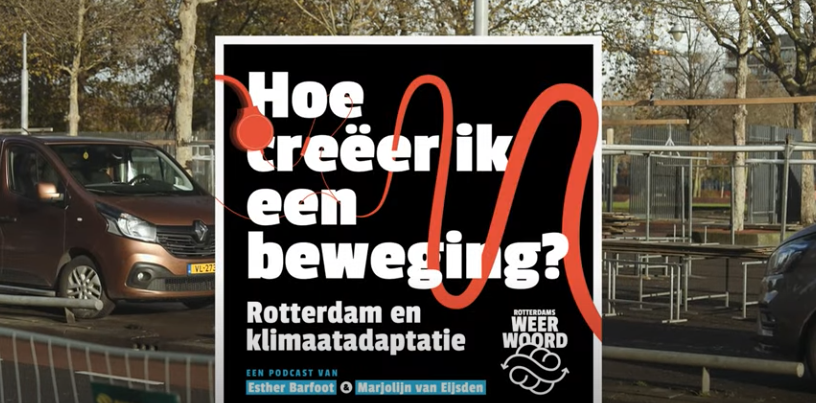City Interview: Rosemarie van Ham - ICAR, Rotterdam

date: 24/02/2023
Can you explain briefly what your job entails and what activities it includes?
ICAR advocates for a social approach to climate change and works out the principle of “no climate justice without social justice and leaving no one behind”. I am the founder of ICAR which guides different organisations in the team such as various departments in the municipality of Rotterdam, social organisations, housing associations, private organisations, citizens, and international cities, with the aim of an inclusive adaptation climate policy.
The climate crisis is also a social crisis, which means that a social approach cannot be left behind. If social inequalities are not – or only minimally – included in the social approach, this will exacerbate already existing climate vulnerabilities. ICAR is pushing for a better balance between the current technocratic perspective and a social equity perspective within the climate approach. Social themes such as poverty, debt and health should carry as much weight, perhaps more weight, than the physical climate themes in climate policy. ICAR is working towards a Rotterdam where all residents are able to protect themselves from the climate crisis, act climate adaptively and deal resiliently with the various challenges that cross their path.
Within your domain, what do you consider the biggest challenge(s) for cities and urban stakeholders right now?
The climate adaptation program of the city of Rotterdam called “Weather Wise” includes vulnerable groups and for the first time also the theme “climate inequality”. It is important for climate actions to address different themes such as socio-economic activities, as well as cultural factors, such as gender roles and ideas about masculinity and femininity. Often climate change is seen as a technical problem and it is what science, technology, engineering, and economic solutions need. The focus must be on the climate effects on vulnerable populations and the socioeconomic inequalities in societies to aim policymakers for an inclusive climate policy. It also means that the experience of people can also vary greatly based on factors such as physical, ability, sexual orientation, ethnic background, and religion.
If applicable, how do you learn from other cities and/or let other cities learn from your work?
Exchange experiences and methodologies with other cities throw cities' networks or European subsidies. Attending different webinars/presentations and gatherings. Giving presentations about the work of the municipality of Rotterdam.
If you could formulate one sentence to convey a message to other local policymakers, civil servants, researchers and other members of this community of practice for CITIES, what would it be?
Climate change cannot be solved without solving poverty, (gender) inequality and racism.
If possible you could also add an image that reflects well your core activities.
We have a new podcast, you can listen to it here (Dutch with English subtitles).
